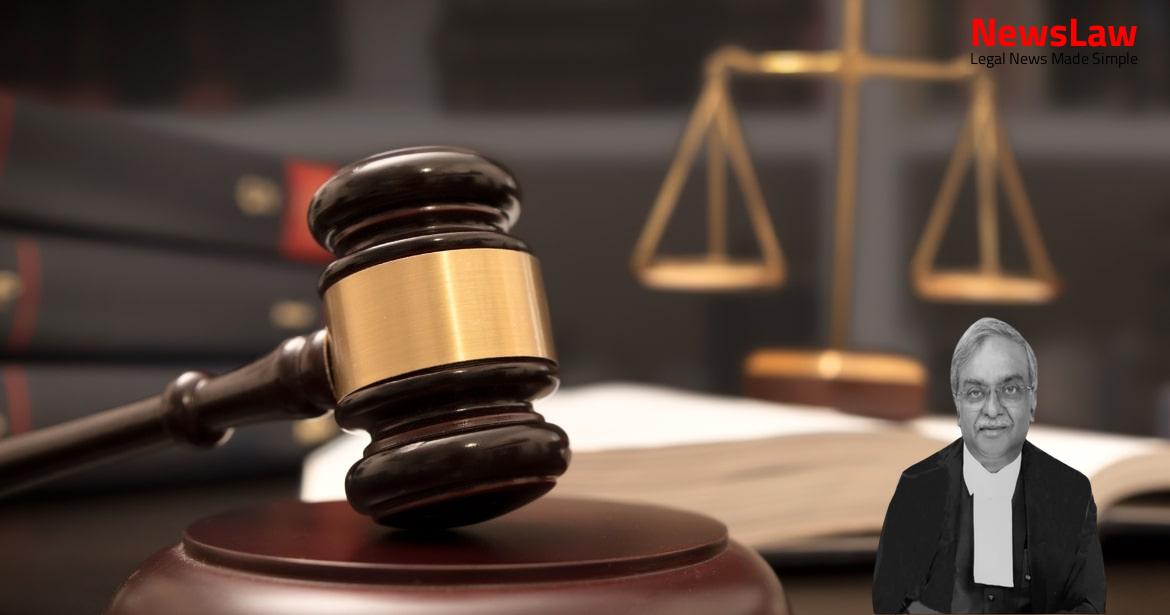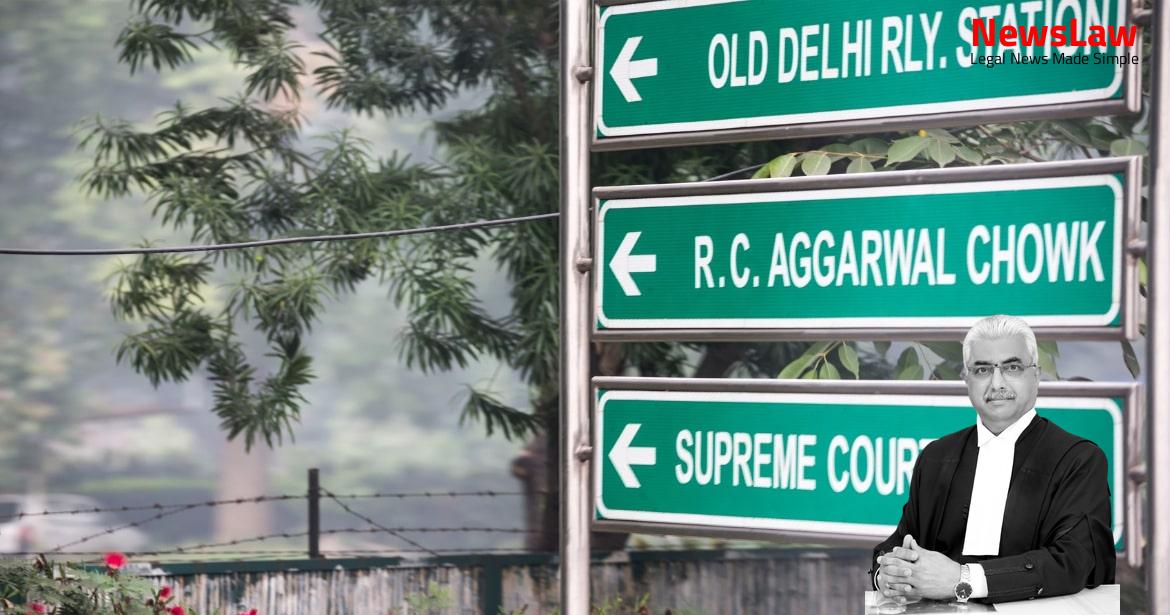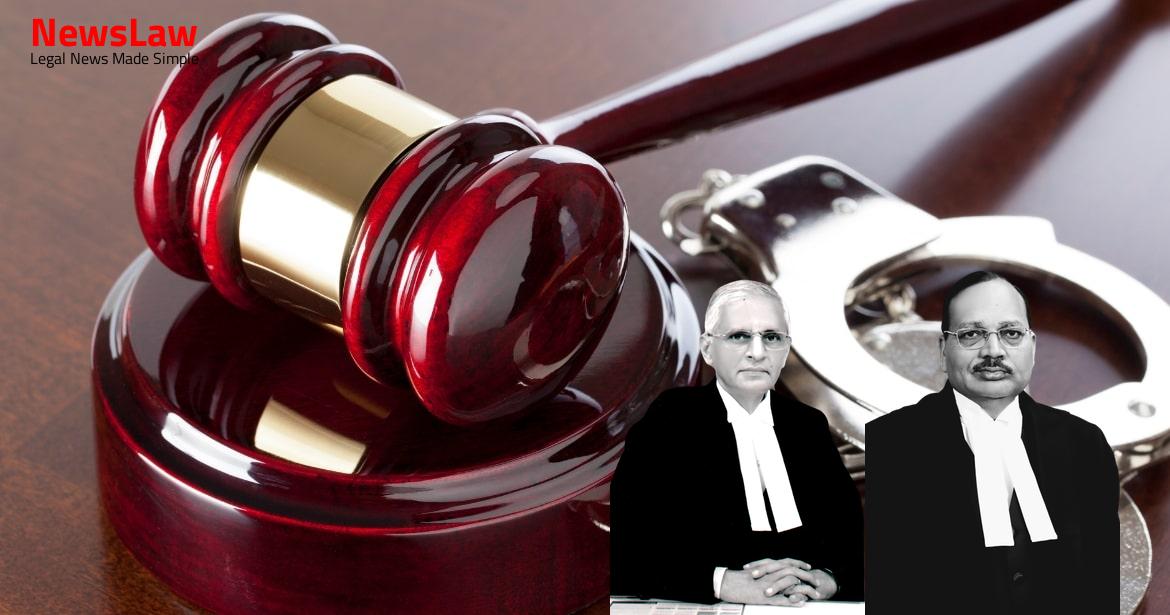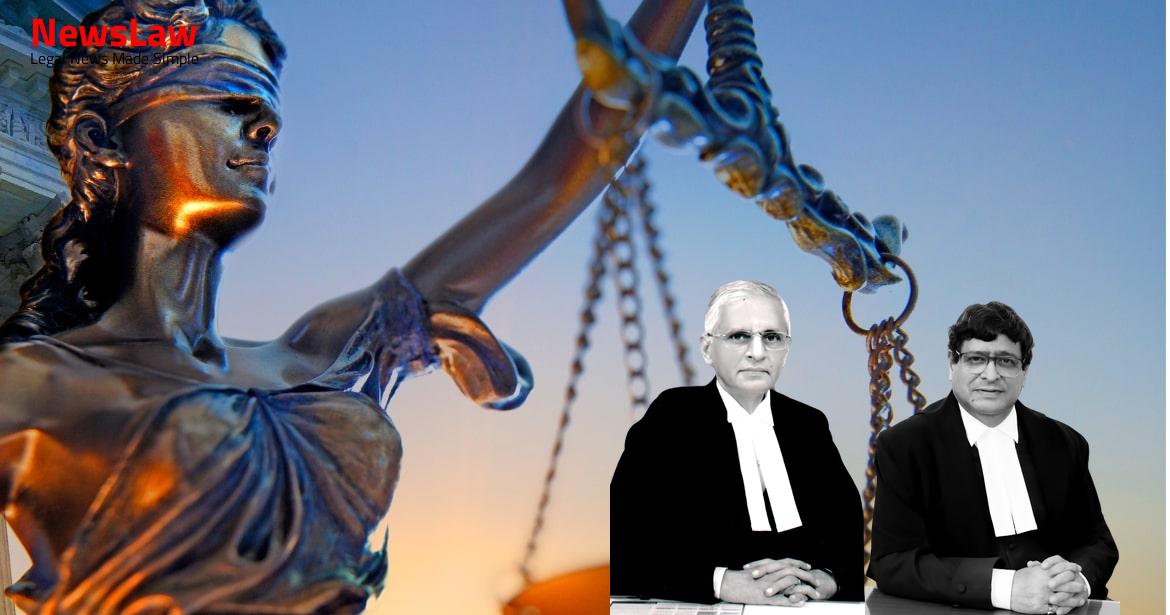In a significant ruling by the Supreme Court of India, a landmark judgment has been delivered on a high-profile divorce and maintenance dispute. The case involved a long-standing legal battle between the parties over financial obligations and the dissolution of marriage. This judgment marks a pivotal moment in matrimonial law, setting guidelines for the adjudication of irretrievable breakdown and one-time settlements. Stay tuned for the detailed analysis and implications of this groundbreaking decision.
Facts
- Application No 4622 of 2016 and Criminal Application No 41/2019 were transferred to Tis Hazari Courts, Delhi.
- Judicial Magistrate in Gautam Budh Nagar ordered the respondent to pay Rs. 35,000 as interim maintenance to the appellant.
- Appellant filed a petition seeking attachment of respondent’s accounts and complete arrears of Rs. 65,00,000 in Mahila Court, Tis Hazari, Delhi.
- Both parties challenged the order before the Additional Sessions Judge, Gautam Budh Nagar.
- Appellant wife claims that respondent husband has not paid any amount towards interim maintenance for the last 5½ years.
- Marriage between the parties was solemnized on 30.04.2015, followed by FIR No.34/2016 against the respondent on 13.04.2016.
- High Court of Allahabad referred parties to mediation in respondent’s Criminal Miscellaneous Writ Petition.
- Various applications and petitions were filed by the respondent challenging the orders of interim maintenance.
- Additional Sessions Judge modified the order of the Judicial Magistrate and directed the respondent to pay Rs.45,000/- per month to the appellant and Rs.55,000/- per month to her daughter.
- The respondent filed an application under Section 482 of CrPC before the High Court of Allahabad challenging the order of interim maintenance.
- The matter was referred to mediation but failed, leading to the appellant filing a criminal application against the respondent for non-compliance of the order dated 01.02.2019.
- The High Court of Delhi directed the respondent to pay 10% of the total arrears of interim maintenance to the petitioner within fifteen days.
- The High Court further directed the respondent to pay 20% of the total arrears of interim maintenance within twenty days.
- The Metropolitan Magistrate, Mahila Court was directed to decide the quantum of the interim maintenance amount payable monthly by the respondent to the appellant within three months.
- In the proceedings before the Mahila Court at Tis Hazari, Delhi, the Court modified the High Court’s order and directed the respondent to pay Rs. 2 Lakhs within twenty-four hours and the remaining amount before a specified date.
Also Read: City Manager Selection Dispute: Upholding Rules 2014 Over Executive Order
Issue
- The next contention in this case is the amount of maintenance to be paid by the respondent-husband to the appellant-wife.
Also Read: Supreme Court Ruling on Withdrawal of Prosecution: Case of Chhote Singh
Arguments
- The respondent-husband contests against the appeals stating that the appellant has been employed and owns immovable property
- The respondent mentions that the appellant has already received Rs. 40 lakhs as maintenance for her daughter from a previous marriage
- The strained relationship between the parties is acknowledged by both sides as beyond reconciliation
Also Read: Supreme Court Judgement: Quashing of Resolution Impacting Tanti-Tantwa Community
Analysis
- In the analysis part of the judgment, the Court discussed the law related to the adjudication of one-time settlements in matrimonial disputes.
- The Court cited various cases like Hitesh Bhatnagar v. Deepa Bhatnagar and Ashok Hurra v. Rupa Bipin Zaveri to emphasize the grounds for dissolution of marriage based on irretrievable breakdown.
- The Court highlighted its discretionary power under Article 142 of the Constitution of India to dissolve marriages that are irretrievably broken down, even if no grounds for divorce exist as per the law.
- Factors considered during the examination of irretrievable breakdown included duration of cohabitation, nature of allegations, reconciliation attempts, periods of separation, and more.
- The parties in this case had cohabited for less than a year and have been living separately for nine years, with multiple failed attempts at reconciliation.
- The Court ordered the dissolution of marriage between the parties based on the irretrievable breakdown and protection of the wife’s financial interests through a one-time settlement.
- Courts ensure relief granted is fair, reasonable, and consistent with standard of living of aggrieved party.
- Approach is to balance all relevant factors to avoid maintenance amounts that are excessively high or unduly low.
- Consideration of right of residence under the PWDV Act, impact of wife’s income on maintenance, and needs of minor children.
- Liabilities and financial commitments of the husband are considered for a balanced and fair maintenance award.
- Husband’s standard of living and impact of inflation and high living costs are taken into account.
- Assessment includes costs for food, clothing, shelter, education, and medical expenses.
- Applicant’s educational and professional qualifications, employment history, and potential for self-sufficiency are evaluated.
- Evaluation of any independent source of income or property owned by the applicant to maintain the standard of living.
- Consideration of sacrifices made for family responsibilities impacting career prospects.
- Lack of fixed formula for calculating maintenance, based on a balanced consideration of various factors.
- Factors considered include status of parties, reasonable needs of wife and dependent children, qualifications and employment status, independent income or assets, maintain standard of living, employment sacrifices, litigation costs, and financial capacity of husband.
- Financial capacity of the husband is critical, examining actual income, reasonable expenses, and obligations to support dependents.
- Wife’s earnings do not bar her from receiving maintenance; assessment of whether income can maintain a similar lifestyle as in the matrimonial home.
- Maintenance amount subjective to each case, dependent on various factors and circumstances.
- Primary objective is to prevent dependent spouse from destitution or vagrancy, not to punish the other spouse.
- Precedents like Manish Jain v. Akanksha Jain, Shailja & Anr. v. Khobbanna, and Sunita Kachwaha & Ors. v. Anil Kachwaha reinforce principles for determining maintenance.
- Respondent-husband willing to pay only Rs. 50 Lakhs towards permanent alimony.
- Appellant is employed with several assets.
- Husband argues he has no obligation to maintain daughter as he never adopted her.
- Husband has legal obligation and financial capacity to maintain wife after divorce.
- Court finds appellant’s demand exceptionally high and respondent’s offer insufficient.
- Maintenance should ensure decent living standard for the appellant wife and not be penal.
- Considerations of material on record, arguments by both sides lead to decision that amount offered by respondent is insufficient in broader maintenance considerations.
Decision
- The court considers the social and financial status of the parties, including their current employments and future prospects.
- A one-time settlement amount of Rs. 2 Crores is deemed fair and balanced, covering all pending and future claims.
- The respondent-husband is directed to pay Rs. 2 Crores towards permanent alimony to the appellant-wife within a specified time.
- Parties are allowed to file certified copies of the order in respective Courts to close pending civil and criminal proceedings.
- No order as to costs is issued.
- Leave is granted for the appeals in CRL. APPEAL NOS.
- The appeals are disposed of in similar terms as above, granting decree of divorce under Article 142 of the Constitution of India.
- A four-month period is set for the payment of the permanent alimony amount by the respondent to the appellant.
Case Title: KIRAN JYOT MAINI Vs. ANISH PRAMOD PATEL (2024 INSC 530)
Case Number: Crl.A. No.-002915-002918 – 2024



